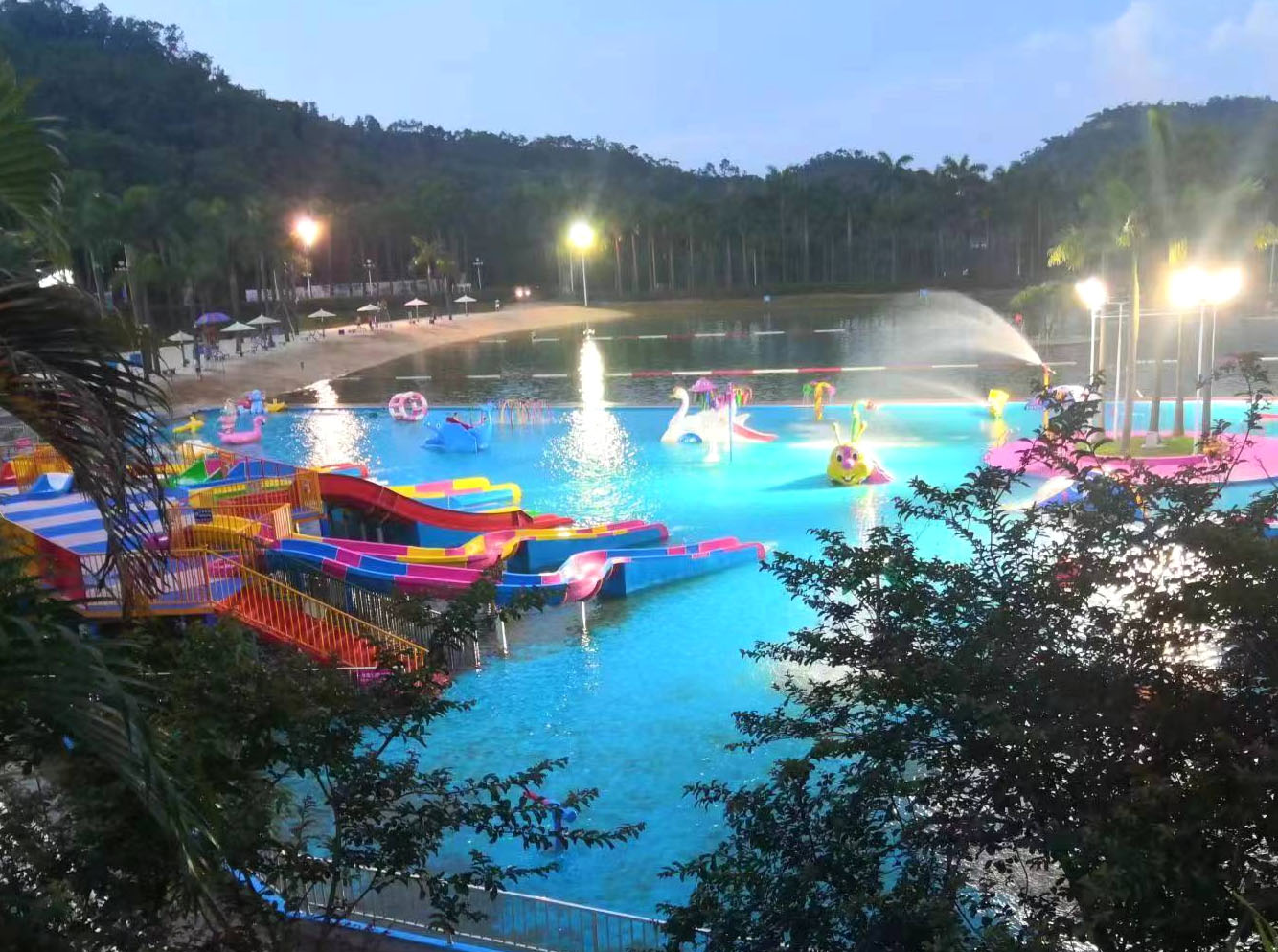
I. The Difficulty in Selecting the Right Pool Coating
Maintaining a pool isn’t easy, and when it comes to swimming pool resurfacing or choosing the right swimming pool paint, selecting the appropriate coating is a crucial part of it. The coating you choose affects the pool’s durability, appearance, and performance. With so many options available, pool owners and builders often feel confused. Making the wrong choice can lead to short-term problems and significant long-term costs and frequent maintenance.
II. The High Cost of Choosing the Wrong Pool Coating
Selecting an unsuitable coating can cause many issues. Peeling, discoloration, and water leakage are common problems. These issues increase maintenance costs. A coating that isn’t durable enough may need frequent repairs or even complete replacement, causing unwanted pool downtime. Some coatings can’t withstand harsh chemicals or environmental conditions, leading to quick deterioration of the pool’s surface.
III. Finding the Best Pool Coating
To avoid these costly mistakes, it’s important to fully understand the different types of pool coatings, such as polyurea coatings which have a relatively high search volume among keywords related to pool coatings, their benefits, and how to choose the one that suits your needs. In this article, we’ll explore various pool coating options, focusing on the excellent qualities of polyurea coatings, and provide guidance to help you make an informed decision for your pool.
IV. The Main Types of Pool Coatings
When choosing a pool coating, you need to consider factors like the pool’s location, how often it’s used, and the environmental conditions it will face. Let’s look at the main types of pool coatings:
Epoxy Coatings
Advantages: Epoxy coatings are well-known for their great waterproofing and durability. They bond strongly with concrete surfaces and resist chemical wear, making them suitable for indoor and freshwater pools.
Disadvantages: Over time, epoxy coatings may fade or change color, and their surface can become rough, making cleaning harder.
Polyurethane Coatings
Advantages: Polyurethane coatings have a high-gloss finish and excellent UV resistance, suitable for both indoor and outdoor pools. They strongly resist chemicals and environmental factors, resulting in a long-lasting and nice-looking finish.
Disadvantages: Polyurethane coatings are usually more expensive than other types, and their precise application requirements can raise installation costs.
Polyurea Coatings (The Best Choice)
Advantages: Polyurea coatings are excellent in waterproofing and corrosion resistance. They form a seamless, durable layer that can withstand extreme environmental conditions and chemical exposure. Their fast curing time makes them ideal for projects with tight schedules. Also, their great UV resistance makes them perfect for outdoor pools.
Disadvantages: Polyurea coatings need professional application, and the initial cost may be higher than other coatings. However, the long-term savings from reduced maintenance and repairs make polyurea a cost-effective choice in the long run.
Acrylic Coatings
Advantages: Acrylic coatings are environmentally friendly and easy to apply, a good option for pools with frequent water chemistry changes. They provide a smooth finish and resist algae growth.
Disadvantages: Compared to polyurea or epoxy, acrylic coatings have a shorter lifespan and may fade or peel when exposed to UV rays.
V. Why Polyurea Coatings are the Top Choice for Your Pool?
Polyurea coatings are the most durable and reliable option for protecting your pool. Here’s why:
Superior Waterproofing
Polyurea coatings create an outstanding waterproof barrier, forming a seamless membrane that effectively stops water from seeping through. This keeps the outside of your pool dry, preventing structural damage and corrosion.
Durability and Wear Resistance
Polyurea coatings highly resist mechanical wear and chemical exposure. Whether your pool is used heavily, undergoes frequent chemical treatments, or faces extreme weather conditions, polyurea can handle it. Its flexibility also reduces the chance of cracking, even under heavy impact or temperature changes.
Fast Curing Time
One of the key benefits of polyurea coatings is their quick curing time. This allows for faster completion of pool installations, repairs, and renovations, which is especially helpful for commercial properties like hotels and gyms that can’t afford long downtimes.
UV Resistance and Longevity
Polyurea coatings strongly resist UV rays, ensuring their color stays vibrant for a long time, even in direct sunlight. This makes them an ideal choice for outdoor pools, as they don’t fade or discolor easily due to sun exposure.
VI. How to Choose the Right Pool Coating Type
The ideal pool coating depends on various factors such as the type of pool, how often it’s used, and environmental conditions. Here’s how to make the right choice:
Indoor vs. Outdoor Pools
For outdoor pools, it’s essential to choose a coating that can withstand UV exposure and weathering. Polyurea coatings are an excellent choice for such environments due to their UV resistance and durability. For indoor pools, epoxy or polyurethane coatings may be more suitable, as they offer good waterproofing and a smooth finish.
Budget Considerations
The cost of pool coatings varies a lot. Polyurethane and polyurea coatings may have a higher initial cost, but they offer long-term savings because of their durability and low maintenance requirements. Acrylic coatings are more affordable but may need to be reapplied more frequently.
Frequency of Pool Use
If the pool is used frequently or has a lot of traffic, durability is even more important. Polyurea coatings are ideal for these pools due to their wear-resistance and long-lasting properties.
Environmental and Regulatory Considerations
Make sure the coating meets local environmental regulations, especially if you’re building or renovating a pool in an environmentally sensitive area. Choose a coating with low VOCs (volatile organic compounds) and that is environmentally friendly. Polyurea coatings meet these standards while providing great protection.
VII. Polyurea Coatings in Practical Pool Applications
Polyurea coatings are very versatile and have proven effective in different pool settings:
Residential Pools
Polyurea coatings provide long-lasting protection and enhance the appearance of private pools. They prevent leaks, reduce maintenance costs, and keep the pool in great condition for years.
Commercial Pools (Hotels, Gyms)
High-traffic commercial pools need coatings that can handle constant use. Polyurea’s durability, ease of repair, and fast curing time make it the ideal choice for these facilities, minimizing disruption to operations.
Water Parks
With high levels of water exposure and heavy foot traffic, water parks need coatings that can withstand constant wear and tear. Polyurea’s wear-resistant properties make it an ideal solution for water slides, fountains, and large pool areas.
VIII. The Polyurea Coating Application Process: What to Expect
Proper application is crucial for maximizing the benefits of polyurea coatings. Here’s what you can expect during the installation process:
Surface Preparation
Before applying the polyurea coating, the pool’s surface must be carefully cleaned and prepared. This includes filling any cracks and ensuring the surface is dry and free of contaminants.
Application Methods
Polyurea can be applied using spray, roller, or brush techniques. However, spray application is the most efficient, resulting in a smooth, even layer with few seams.
Curing Time
Polyurea coatings cure quickly, usually within 24 hours, allowing the pool to be ready for use soon after application.
IX. Maintaining and Caring for Polyurea-Coated Pools
Once applied, polyurea coatings require little maintenance. However, to extend their lifespan, consider the following:
Regular Inspections
Check for any signs of wear or damage, especially after heavy use. Promptly repair any small issues to prevent larger problems.
Cleaning
Use mild cleaning solutions to avoid damaging the surface. Regular cleaning helps maintain the pool’s appearance and ensures the coating lasts longer.
Repairing Damage
If the coating gets scratched or chipped, it’s important to repair it immediately to prevent water from getting in and to ensure continued protection of your pool.
X. Conclusion: Choosing the Right Pool Coating
Selecting the right pool coating is vital for the long-term health and functionality of your pool. While each coating type has its advantages, polyurea coatings stand out due to their exceptional durability, waterproofing capabilities, and UV resistance. They offer great protection against wear and tear, chemical exposure, and environmental factors, making them the best choice for pools that need long-term, low-maintenance protection.
Reference link:
Waterproofing swimming pools with polyurea elastomer
How to waterproof swimming pools




